Poppi Worthington: Father declined to answer questions
- Published
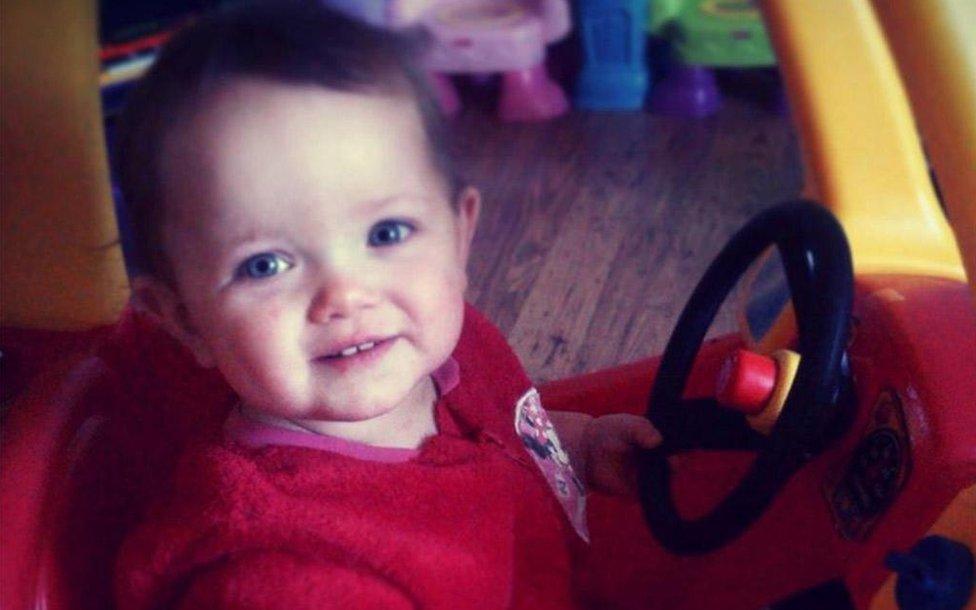
The coroner ruled Poppi died of asphyxiation after being sexually assaulted by her father
Poppi Worthington was found lifeless by her father at their home in Barrow-in-Furness, Cumbria, in 2012. A three-week inquest - held after the first was deemed inadequate - has resulted in a coroner deciding she was sexually assaulted in the hours before her death by her father. During the inquest, Paul Worthington was asked more than 250 questions and declined to answer all but a handful of them.
It was 11:30 GMT on 30 November - the fourth day of the inquest being held at County Hall in Kendal.
Paul Worthington, seated in the witness chair at his daughter Poppi's inquest, had finally been asked the question many wanted answering.
"Why did you hurt your daughter?" said Kate Stone, solicitor for Poppi's mother, who cannot be named.
It was towards the end of his second day appearing as a witness.
The press benches were filled. A court artist scrutinised Mr Worthington's features and appearance.
His reply was, by now, familiar.
"I refer to my previous statements," he said. "I rely on my rights not to answer that under rule 22."
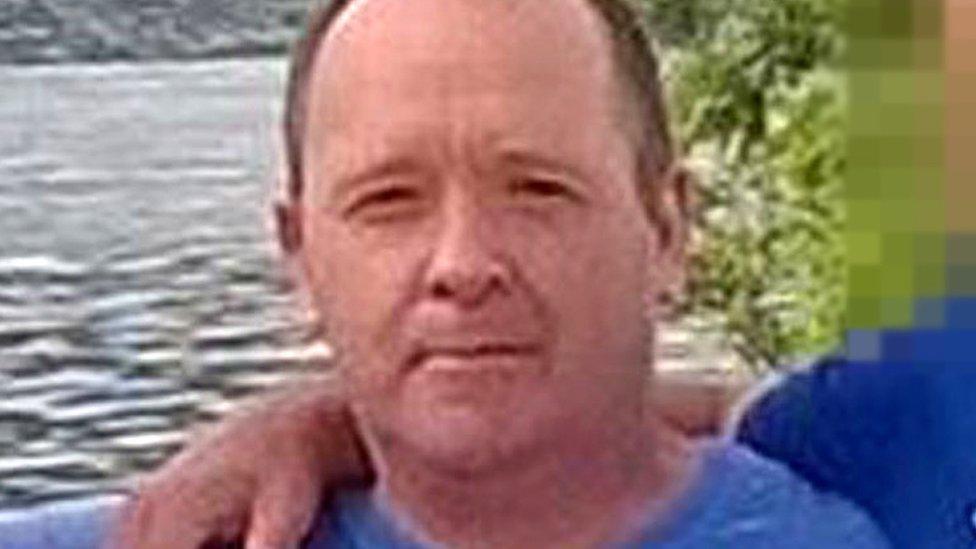
Paul Worthington denied harming his daughter
Mr Worthington was referring to inquest rules which protect witnesses from potentially incriminating themselves.
However, the three-week inquest heard sufficient evidence for the senior coroner for Cumbria, David Roberts, to decide that Mr Worthington had taken his daughter to his bed and assaulted her before laying a duvet or blanket over her and going to sleep.
He said: "The deceased died as a result of her ability to breathe being compromised as a result of an unsafe sleeping environment."
It follows a ruling in January 2016, by family court judge Mr Justice Peter Jackson, that on the balance of probabilities Mr Worthington had subjected his daughter to a "penetrative sexual assault" - an allegation he strenuously denies.
Mr Worthington had been the last person to see Poppi alive. Poppi's mother told the inquest she heard her daughter cry out in the night, while Mr Worthington was upstairs.
He later carried her lifeless body down the stairs, frantically shouting for his partner to call the ambulance.
Poppi 'sexually assaulted before death'
His lawyers had argued, in vain, for their client to be hidden by screens from the public and press when he gave his evidence.
They told the coroner Mr Worthington had received numerous threats and been publicly vilified since Poppi's death. He was living in hiding, enduring a nightmare, accused of sexually abusing his infant daughter but unable to clear his name.
When he arrived at the inquest venue, it was through a back door with a police escort, his head covered. A decoy van had even been deployed in the car park in an attempt to bamboozle the waiting media.
Mr Worthington had his face covered when he arrived at the inquest
The coroner declined his request though and, with reporters poised with pens and laptops, the questioning had begun.
Was it right that his relationship with Poppi's mother began in 2009, Alison Hewitt, counsel for the coroner, asked him.
"I refer to my previous statements," he told the court, stumbling slightly over the words.
"I rely on my rights not to answer that under rule 22."
The coroner told Mr Worthington rule 22 did not apply to scene setting questions and the question was put to him again.
He said yes. Further scene setting questions followed. He said yes, it was right it was an on and off relationship and that Poppi's mother was unhappy with his gambling on sports and his cleaning-related obsessive compulsive disorder.
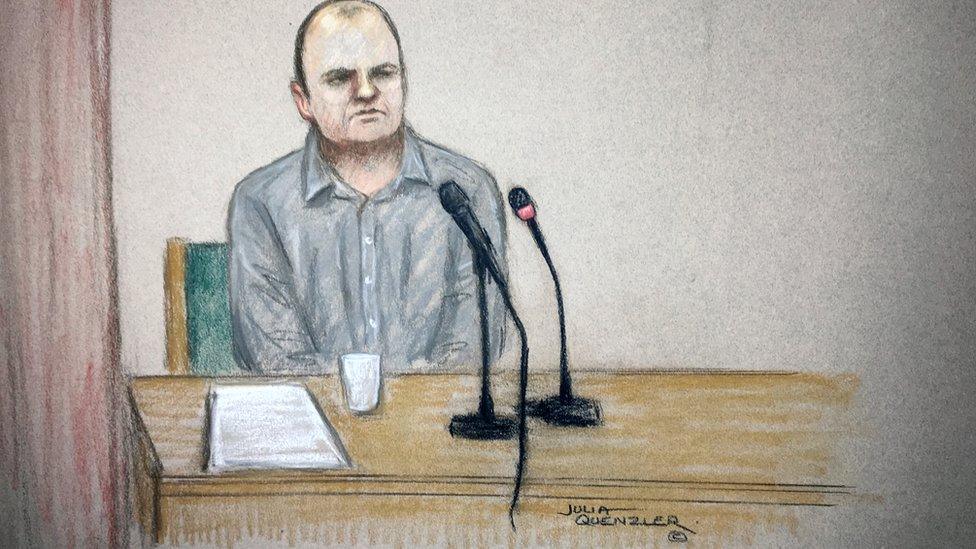
Poppi's father has been living a nightmare, according to his lawyers
However, as the questioning continued, he declined to give more answers.
He refused to answer a total of 69 questions during his first day. The second day was a copy of the first.
His voice broke, he sobbed, he drank water from a glass on his table, he refused to answer question after question, some 252 in all across the two days.
At the end, Mr Roberts told the court no inference should be drawn and Mr Worthington should not be criticised for his stance.
He then asked Mr Worthington if there was anything else he wanted to tell the coroner, to help him understand what happened to Poppi.
"No sir," Mr Worthington replied, his body shaking slightly.
And with that he left the same way he had arrived, bundled into a police van, his face masked, heading back into hiding.
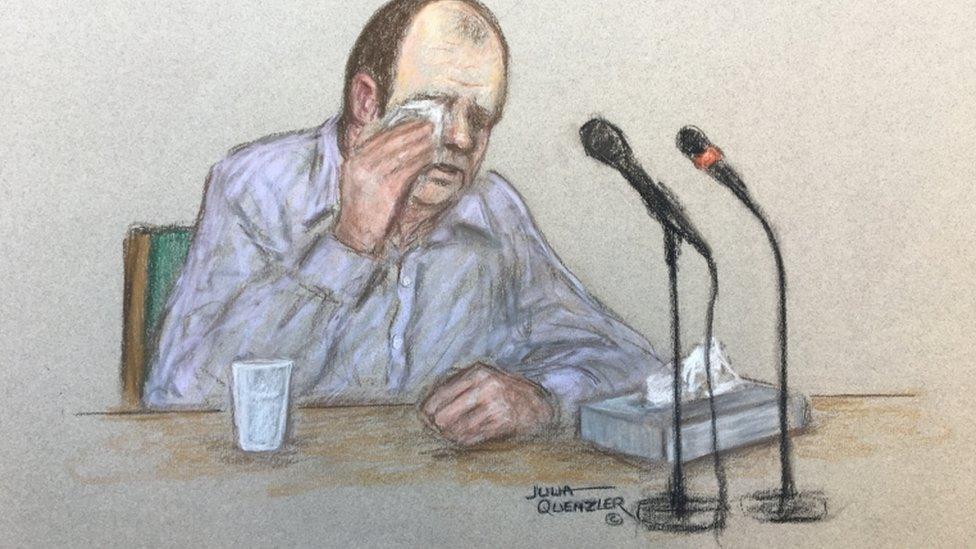
Mr Worthington broke down in tears as he was questioned
The previous statements he referred to, though, were often contradictory and raised questions.
What time had he gone to her? When did he take her leggings off? What position did he leave her on his bed?
All remained unanswered.
At least the questions were being asked this time. A first inquest held in 2014 lasted just seven minutes and coroner Ian Smith said the death could not be explained. Poppi had not even been named at the hearing and had instead just been referred to as a 13-month-old girl.
Mr Roberts agreed to hold a second inquest after receiving representations from the media.
This time every detail would be gone into, although many of the questions could not be answered. This was thanks, in no small part, to a police investigation that the force itself admits fell below the proper standard.
Dr Alison Armour was the Home Office pathologist who examined Poppi. She was certain Poppi had been abused and it was her findings that Mr Justice Peter Jackson based his conclusions on.
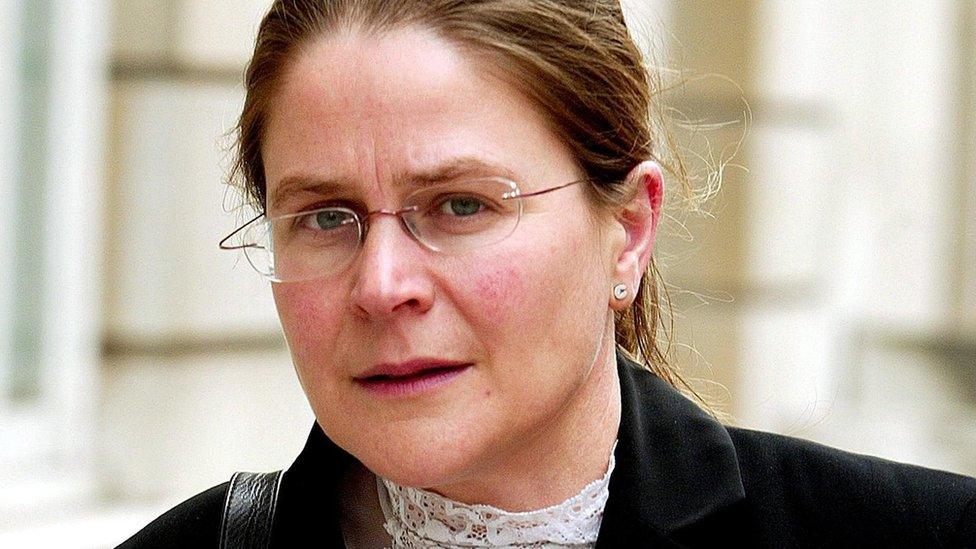
Dr Alison Armour (pictured in 2005) said Poppi had been sexually assaulted
She told the inquest that external and internal marks she found on Poppi's body were consistent with abuse.
Though she could not find a cause of death, Dr Armour said she believed either the abuse triggered a fatal reaction or Poppi suffocated on bedding, possibly as a result of being laid face down.
However, other experts said some of the marks could have occurred naturally while others may have been caused by resuscitation attempts.
Mr Worthington's lawyers questioned her conclusions.
How could she be sure there had been abuse when others were not? Had she been tainted by the police who, before she carried out her examination, told Dr Armour there had been previous unsubstantiated allegations against the father?
She was, in short, unprofessional and lacking objectivity, they argued.
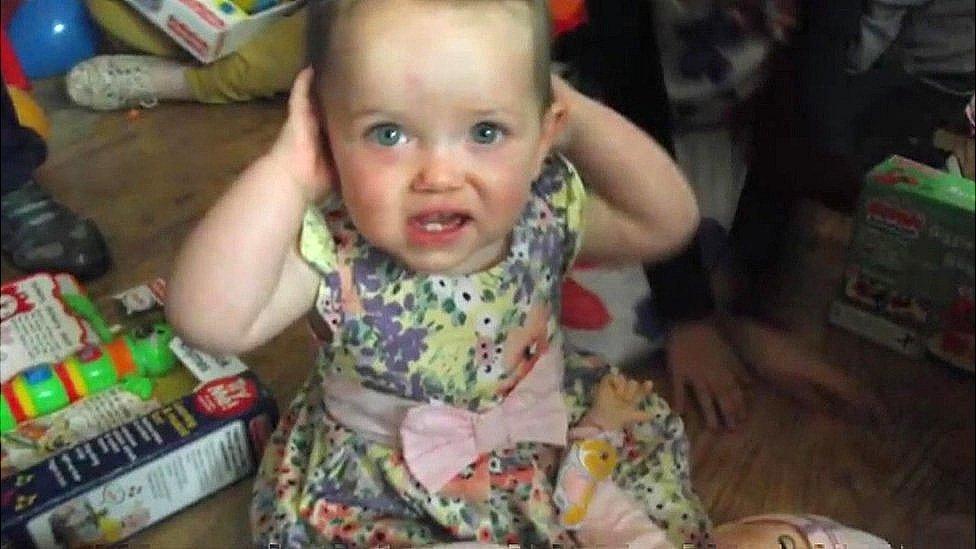
Poppi Worthington was 13 months old when she died
Dr Armour disagreed - very strongly.
She said she appreciated other experts held different views, but she stood by her conclusions.
She was sure, based on the marks she had seen, that Poppi had been abused.
However, the coroner was told other experts, who were asked to look at the case by the National Crime Agency and representatives of Poppi's family, were less certain.
Home Office pathologist Dr Nat Cary said had Poppi been abused, he would have expected to see much more evidence of it; more bruising and injury.
The evidence was just not there to say anything untoward had happened, he argued.
What evidence there was could be explained away, often as a result of the police's poor investigation, the coroner was told.
For example, Poppi's DNA had been found on her father's penis. However, in the eight hours between her being taken to hospital and swabs being taken from him, he would have gone to the toilet, thereby transferring the DNA, his lawyers argued.
The expert who analysed the DNA said the place where it was found was not consistent with evidence an assault had taken place.
However, the coroner ruled that Poppi had suffered anal penetration before her death.
The failings of the Cumbria Police investigation were highlighted throughout the inquest.
In addition to the eight-hour delay before taking a swab test from Mr Worthington, officers also failed to find Poppi's last nappy, failed to secure the house quickly enough and failed to seize other vital evidence, such as the sheet from Mr Worthington's bed or the laptop he had been using, and looking at pornography on, the night before Poppi's death.
Amanda Sadler, who had been the detective inspector in charge, admitted she was not qualified or experienced enough to lead such an investigation.
Not only had police not found enough evidence to prosecute Mr Worthington, they had also failed to find the evidence which could categorically prove him innocent in the eyes of the public, his lawyers argued.
It was hard, they said, to point to anything the police actually did right.
The police agreed.
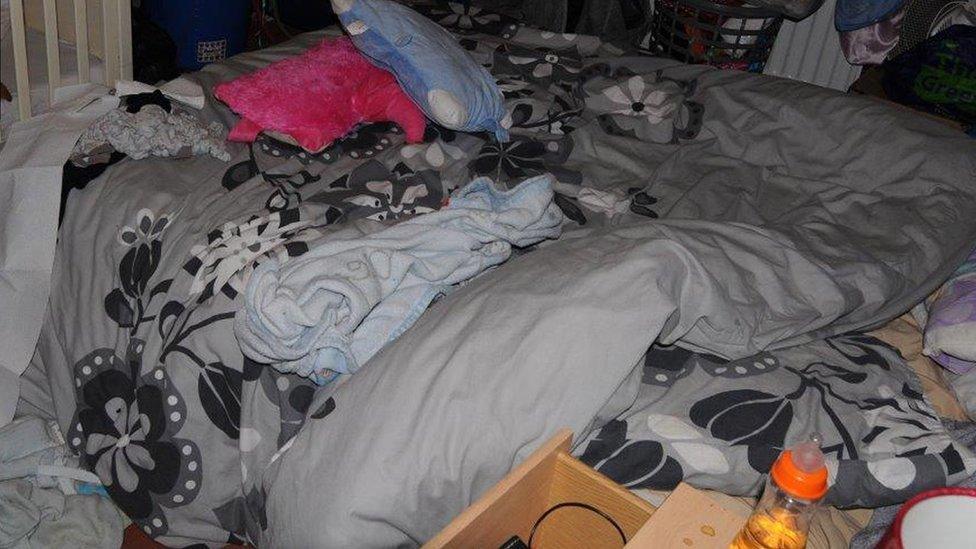
Police failed to seize what could have been vital evidence, including the bed sheet from Mr Worthington's bed and Poppi's beloved pink elephant pillow
Catherine Thundercloud, the officer who took over the case in 2014, cited a list of her colleagues' failings. These included not keeping proper logs, not following procedure, and failing to investigate Poppi's death in the first instance as a possible crime.
The protocols had been there but, for whatever reason, senior officers had not followed them, she said.
They failed Poppi, said Gillian Irving QC, another representative of Poppi's mother.
Mr Worthington has never been charged with any offence relating to Poppi's death and it is unlikely that any charges will ever be brought.
However, it appears that to some extent, questions Poppi's relatives had surrounding her death may have been answered.
- Published14 December 2017
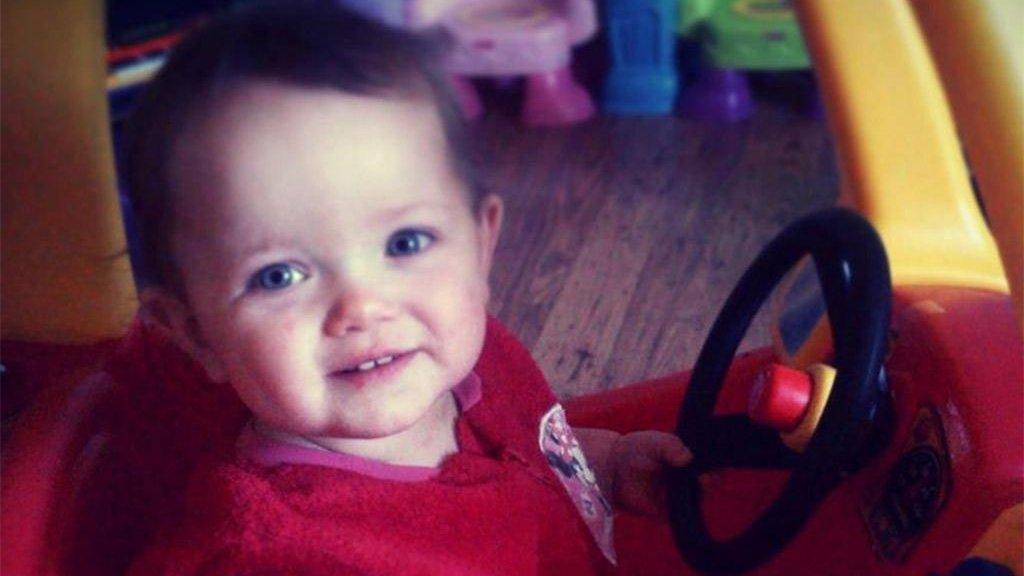
- Published13 December 2017
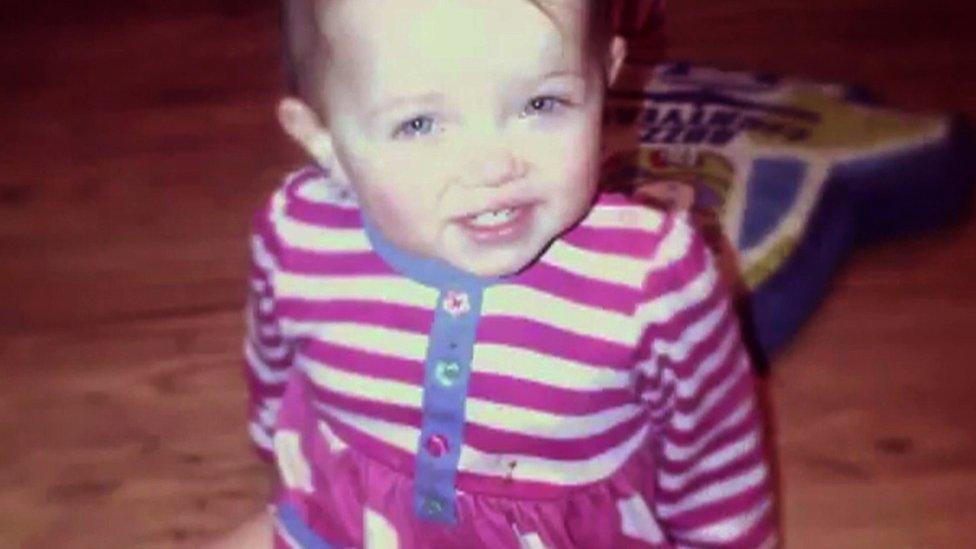
- Published7 December 2017
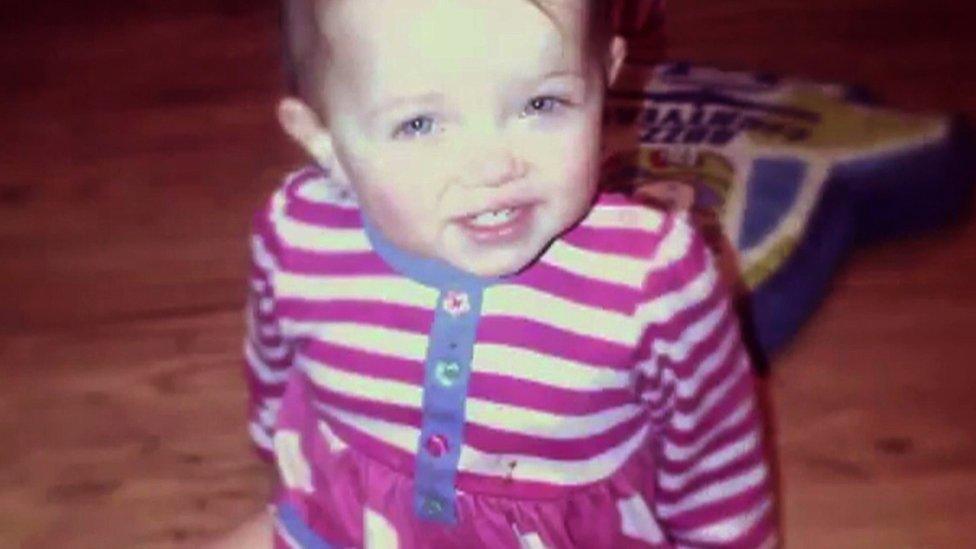
- Published6 December 2017
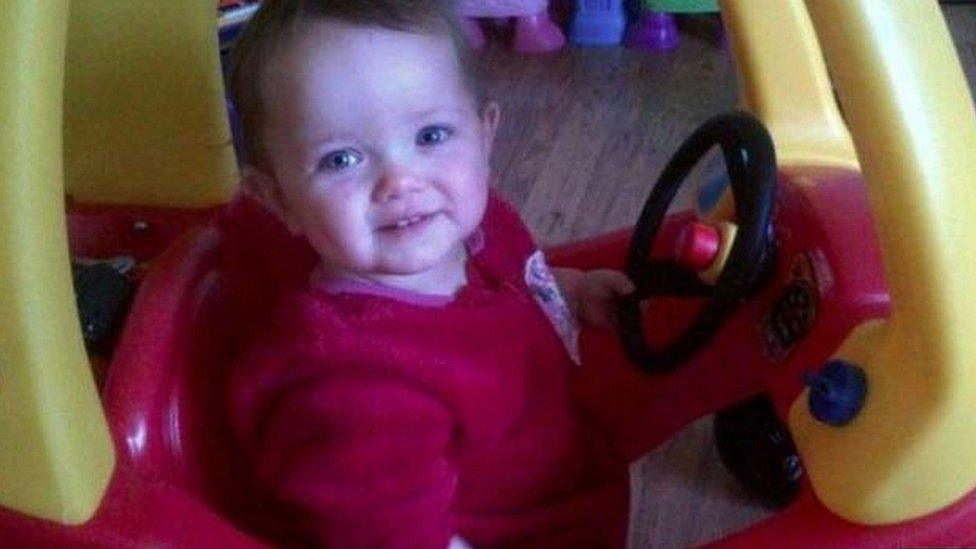
- Published5 December 2017

- Published4 December 2017

- Published30 November 2017

- Published29 November 2017
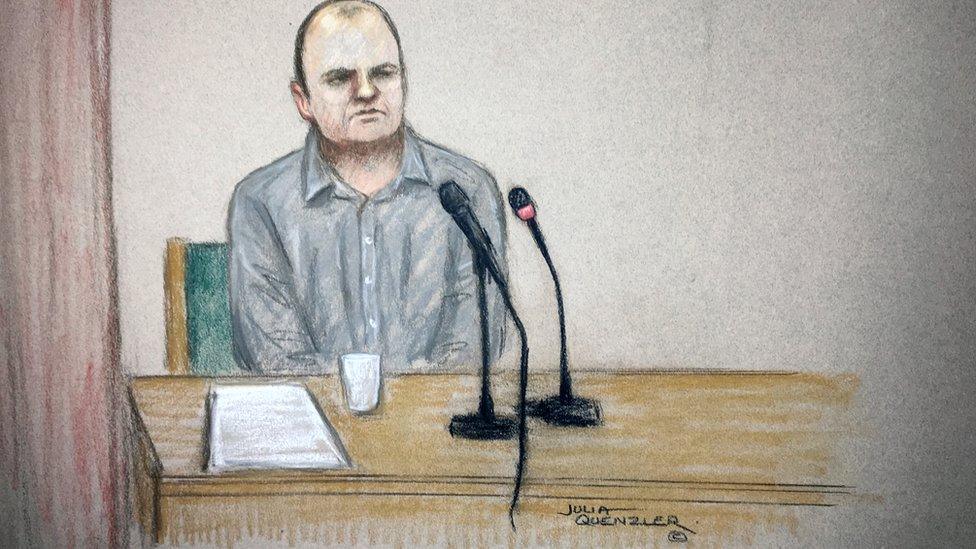
- Published28 November 2017

- Published27 November 2017
